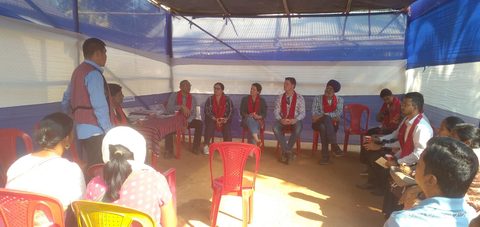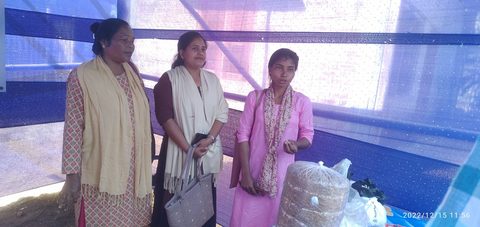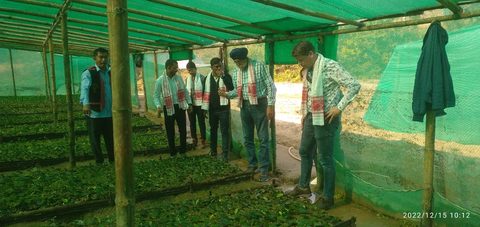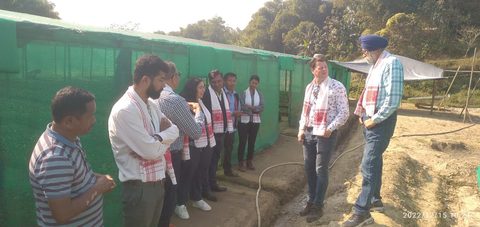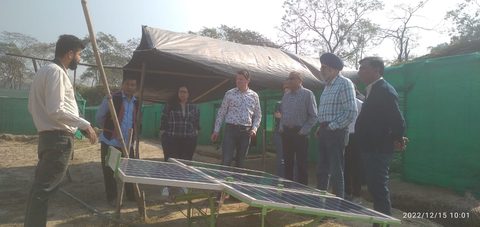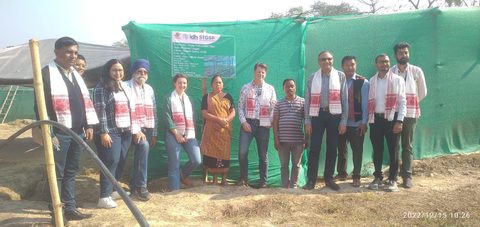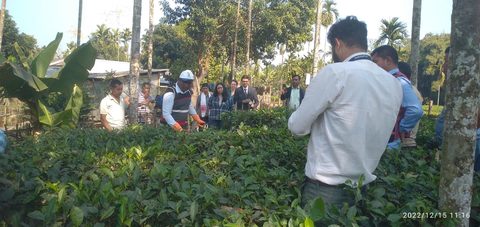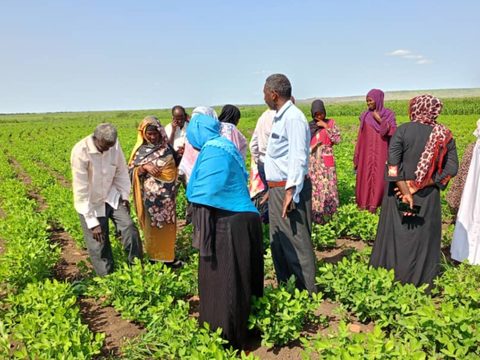Turning over a new leaf for Small Tea Growers
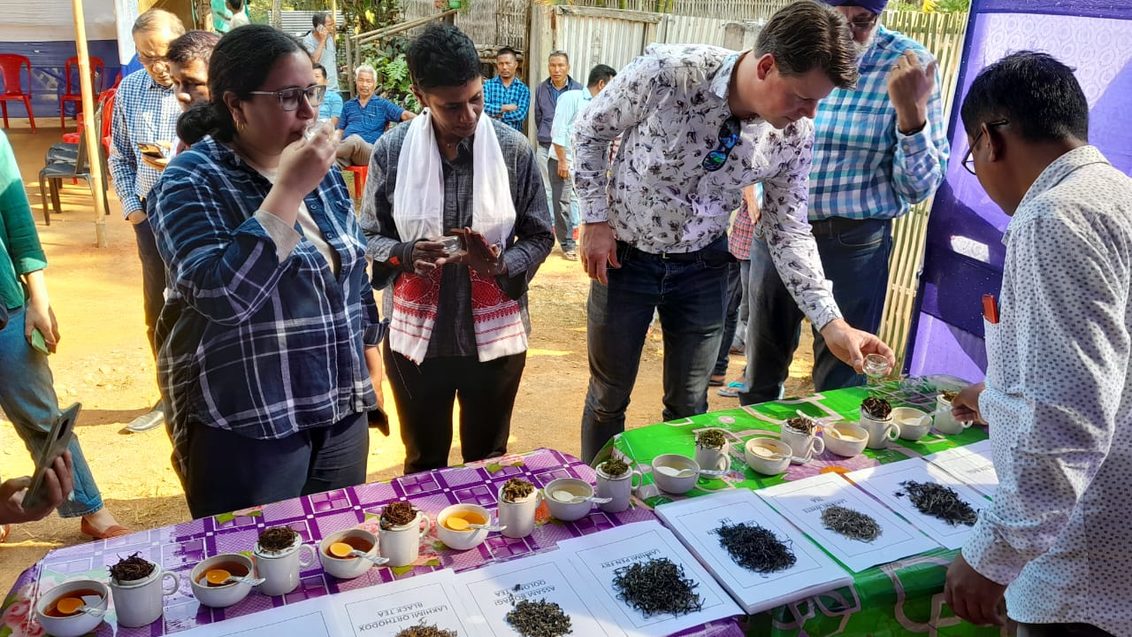
Tea is a big business in India. But small-scale growers often struggle to benefit properly. Our Foundation is helping Assam farmers earn better incomes. Visitors recently saw how.
The Dutch are keen tea drinkers, and a lot of the leaves come from India. It was therefore particularly fitting that our partners at the Netherlands-based sustainable trade initiative IDH recently joined a visit to small-scale tea farmers in India – known there officially as “Small Tea Growers” (STG).
“Our country exports tea worth many millions of dollars each year”, comments Rahul Tidake, Head of Strategy & New Initiatives at Syngenta Foundation India. “But STG finds it very hard to make a living income.” Closing these farmers’ earnings gap is a major focus of work by our Agri-Entrepreneur team in tea-growing areas such as Assam. IDH CEO Daan Wensing and colleagues saw varied examples first-hand in the state’s Karbi Anglong district.
One key route to higher incomes is through better and more reliable quality. That is as true of tea as it is of many other crops. In tea, too, nurseries play a key role in improving quality. The IDH group and our staff visited a new tea nursery established by STG Prodip Tokbi. Local Agri-Entrepreneur (AE) Moses Lengnah provided support and guidance. “Setting this nursery up next to the river cost about $1700”, Moses reports. “A solar pump enables the nursery operator to draw river water and thus grow seedlings year-round. At full production, he’ll produce about 170,000 seedlings per year.”
Our Foundation arranged for Prodip to access a small loan to get the nursery going. “That initial credit of 25,000 rupees (approx. $310) should soon enable him to earn an additional 450,000 - 510,000 rupees each year”, says Moses. “That’s a major boost to his family income”. The IDH visitors were delighted to see Prodip and other growers coming forward as entrepreneurs and earning money from a second business alongside tea farming itself.
A second way to raise incomes is through crop diversification. This is the route chosen by Assam growers such as Khoysing Engti. He farms about four acres; tea now accounts for only one-eighth of this area. Paddy rice and bamboo cover most of his farm, but Khoysing also grows pineapple and runs a small betelnut nursery. He has additionally moved beyond crops and has two pigs. Khoysing sees animal husbandry as an important alternative source of income. “My pigs can grow to as much as 100kg”, he told Daan Wensing, “and I get about 340 rupees per kilo.” Pork production can add more than $800 to his annual family income.
The visitors were also able to see a range of further income-enhancing activities. AE Narayan Hazarika demonstrated mechanized pruning of tea bushes. “Machine pruners can save farmers about 30 dollars per acre”, Narayan calculates. “With several pruning passes per season, reducing costs also contribute importantly to household income.” AE Sankumoni Gogoi presented the specialty teas he is now producing with 35 small growers. Sankumoni provides advice, collects the leaves from the farmers, and pays them a premium of 30-35 rupees per kilo. AE Rosemerry Dang is helping more than 15 tea growers diversify into mushroom cultivation. Rosemerry supplies straw, culture, and polythene bags, and aggregates the harvest for a local vendor. AE Moses Lengnah is helping growers keep better track of their outlay, production, kilo payment rates, and overall income. To do so, he has provided farm diaries to all the growers associated with him through a registered farmers’ society. “We’ve proved that record-keeping and better leaf plucking empowers small growers to get better prices for their tea”, Moses was proud to tell the Sustainable Trade Initiative visitors.

